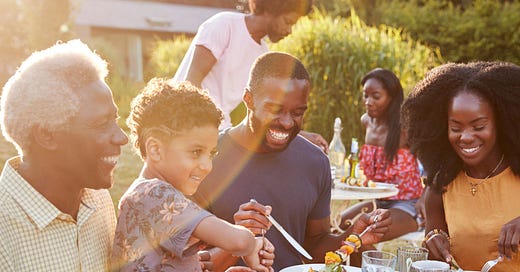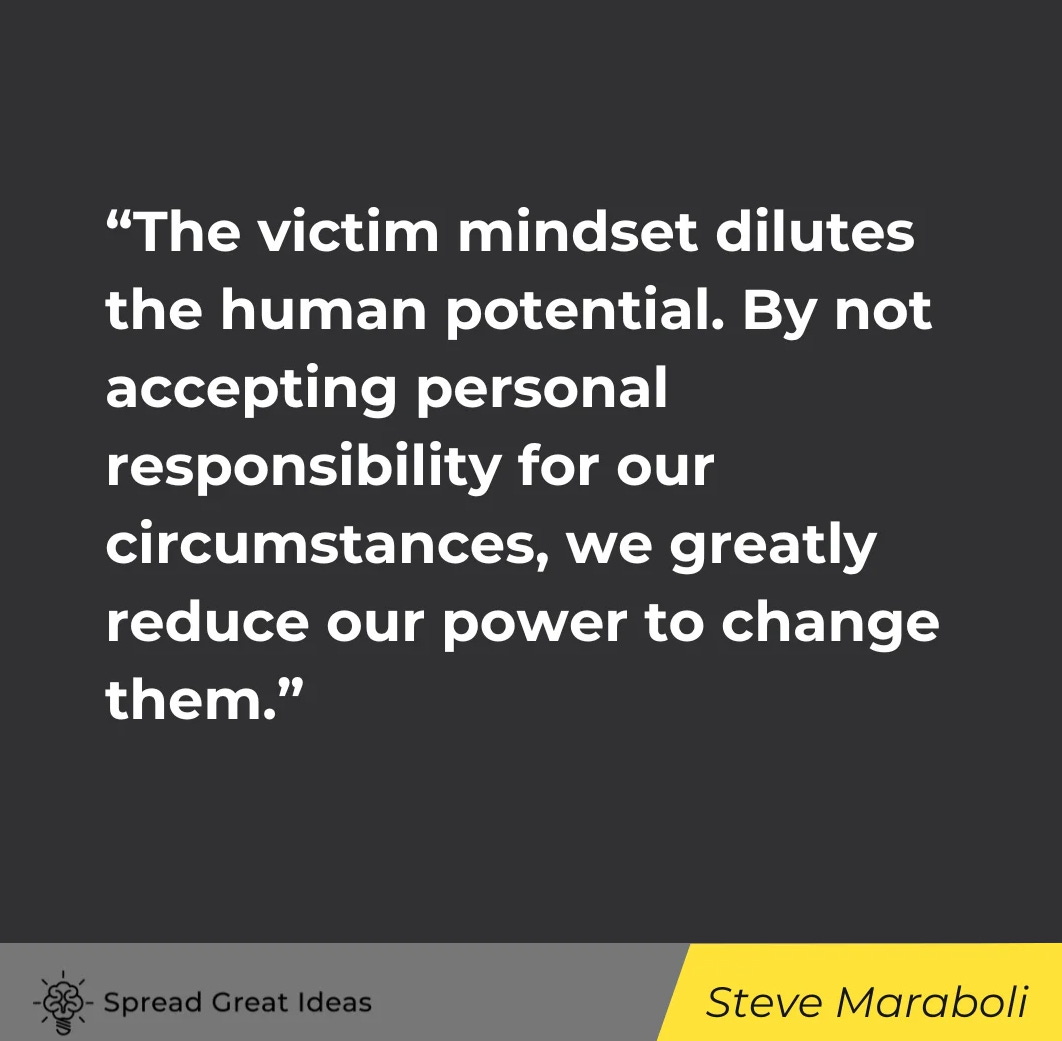Black Fatigue, Accountability & Rebuilding.
If we dare think that every disappointment and failure in our life happens because of the “system” and the “consequence of blackness”, then that self-sabotaging mindset deeply horrifies me.
Because I deeply care about us, I won’t sugarcoat the truth, and the truth is that not everything we suffer or struggle with today is because of “the system.” Many of the problems lie within oneself, the reckless decisions constantly being made, the toxic patterns we normalize in the black community, and the degrading behavior we masquerade as culture. I have zero tolerance for unaccountability. Every man, whether black, white, or brown, must take full responsibility for what he can control, i.e., his actions and choices. It’s simple: If we want real changes for ourselves and our families, if we want to be taken more seriously by society, and hold institutional and global power or influence, then our houses have to get in order on a collective level. And this begins by curbing the fatherless crisis in the black community.
1. Ending the Fatherless Epidemic
The greatest institution to build a nation and curb societal ills is a collection of strong and stable family units where both parents are actively present. The black community will never thrive optimally when fathers are absent from the home, leaving mothers to carry the burden of parenting. Back then, slave owners would tear apart the black family unit, but slavery is long gone. No chains are holding black men’s feet from taking their rightful place in the home and their kids’ lives (not all follow this pattern). According to data from the U.S. Census Bureau (2023), nearly half of Black American children are raised in homes without their biological fathers. And the consequences of fatherlessness are felt throughout society. Fatherless children are
More prone to crime, incarceration, and behavioral disorders.
More vulnerable to teen pregnancy, substance abuse, and depression.
4 times more likely to live in poverty.
And more likely to drop out of school.
Again, until the collective of black families take accountability for this most critical part—the raising of children by TWO present and actively involved parents, then instead of raising builders, we’re raising broken boys.
2. Abandon the Victim Mentality
I share the same colonial past as US-born Black Americans, yet I see no reason to live in a victim consciousness as some do. Yes, the system had failed us. Yes, the playing field was rigged. Yes, racial discrimination still lingers. But if we stay in a victim mindset, we would be handing over ourselves to others. If we dare think that every disappointment and failure in our life happens beacuse of the “system” and the “consequence of blackness”, then that self-sabotaging mindset deeply horrifies me. And a victim mindset will only keep us from building the life we say we want. It’s extremely dangerous to operate from a victim consciousness because this only breeds irresponsibility, helplessness, and an erosion of personal autonomy and identity. We can either keep blaming or we can fix our own house. What’s really worth our time and energy?
It’s okay to grieve what was done. But at some point, we must ask: What are we doing to us? Black on black homicide, fatherless homes, the lack of committed relationships, babymama and babydaddy culture being worn as a badge, aborted babies, the glorifying of thug life and degrading rap music, the tearing down of our own businesses, and each other—these all have to stop for a better outcome. Seriously!
3. The Music Multiplies the Mess
One of the main lenses through which the world witnesses black culture is its music. Back then, black American music was exceptional, especially during the 70s and 80s. Songs like Sweet Love by Anita Baker, What’s Going On by Marvin Gaye, and Never Too Much by Luther Vandross were a few of my favorites. I can’t say the same for today’s mainstream songs, especially derogatory rap music, that’s being widely promoted at the expense of conscious artistes. Again, we cannot talk about serious progress or demand a healthier cultural perception without first calling out the degeneracy in some of the music landing in our teens’ ears.
Musics influence our behavior more than we realize, and chronic exposure to gangsta music has been shown to encourage risky behaviors, rebellion, violence, aggression, and sexual recklessness among African American adolescents. If the soundtrack of the black community is filled with murder, sex, drugs, and flex culture, we’re raising children to dance to their own destruction. The way forward is to stop supporting these albums, take control of what you and your kids consume, demand more positive role models (by first being one), and return to a higher standard.
4. Accountability is the Way
No one will fix what the community has ignored. Many look to the government, celebrities, school systems, everyone, but themselves. We talk a lot about oppression, but what about regression? What about the ways we’ve lowered the bar, normalised fatherless homes, and glorified dysfunction? Far too many of us have handed over our power by outsourcing healing and solutions to systems that will never do what only we can do for ourselves and our families. If we truly want to elevate the Black community, it begins with accountability, and accountability starts with the self: the choices we make, the values we hold, etc. Once the self is reformed, the next step is to rebuild the Black family. That means valuing the institution of marriage, calling men back to their rightful place as protectors, leaders, and providers; encouraging women to raise their standards, and raising children in the understanding and fear of God.
Most of all, what we need and just like everyone else, is a return to God. Reviving any community requires repentance and a return to God’s truth. He has called us to live holy and blameless lives, to forgive and love one another, to walk in humility, to treat others with dignity, and to reject all forms of violence, exploitation, and oppression.
“I now realize how true it is that God does not show favoritism but accepts from every nation the one who fears him and does what is right.” Acts 10:34-35
When we fear God, we love what He loves, and we hate what doesn’t bring Him glory. And I wholeheartedly believe that that kind of reverence for God transforms the way we raise our children, treat one another, and show up in this world. That’s why the future of the Black community depends not on handouts, but on our hands, rebuilding what’s broken, returning to God, and taking personal and collective accountability.







This is interesting. I'm African, so different culture and headspace but cool, nonetheless .